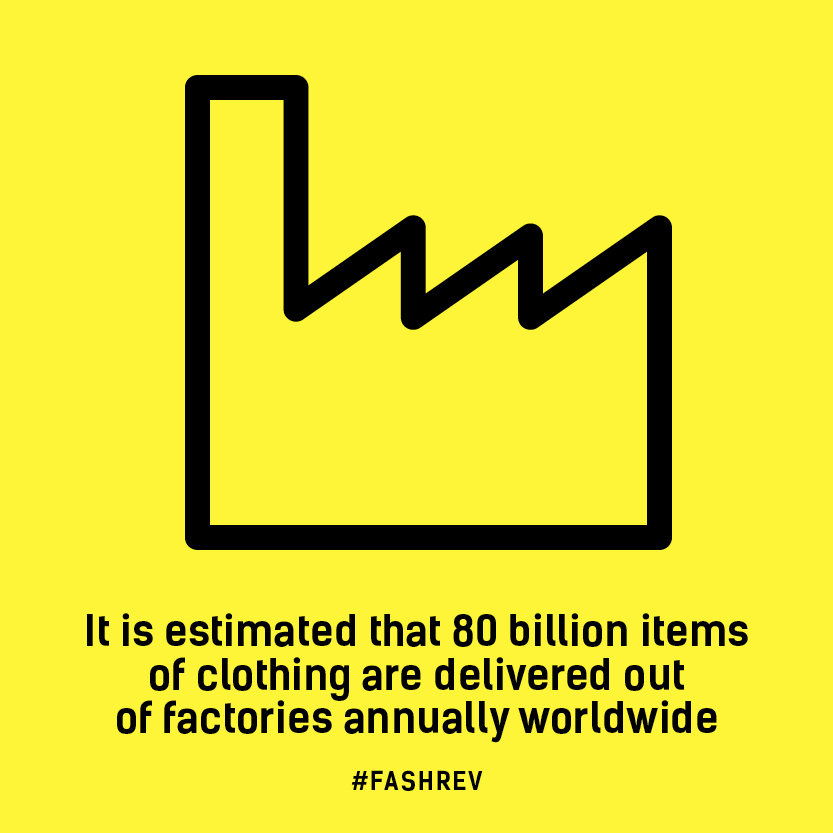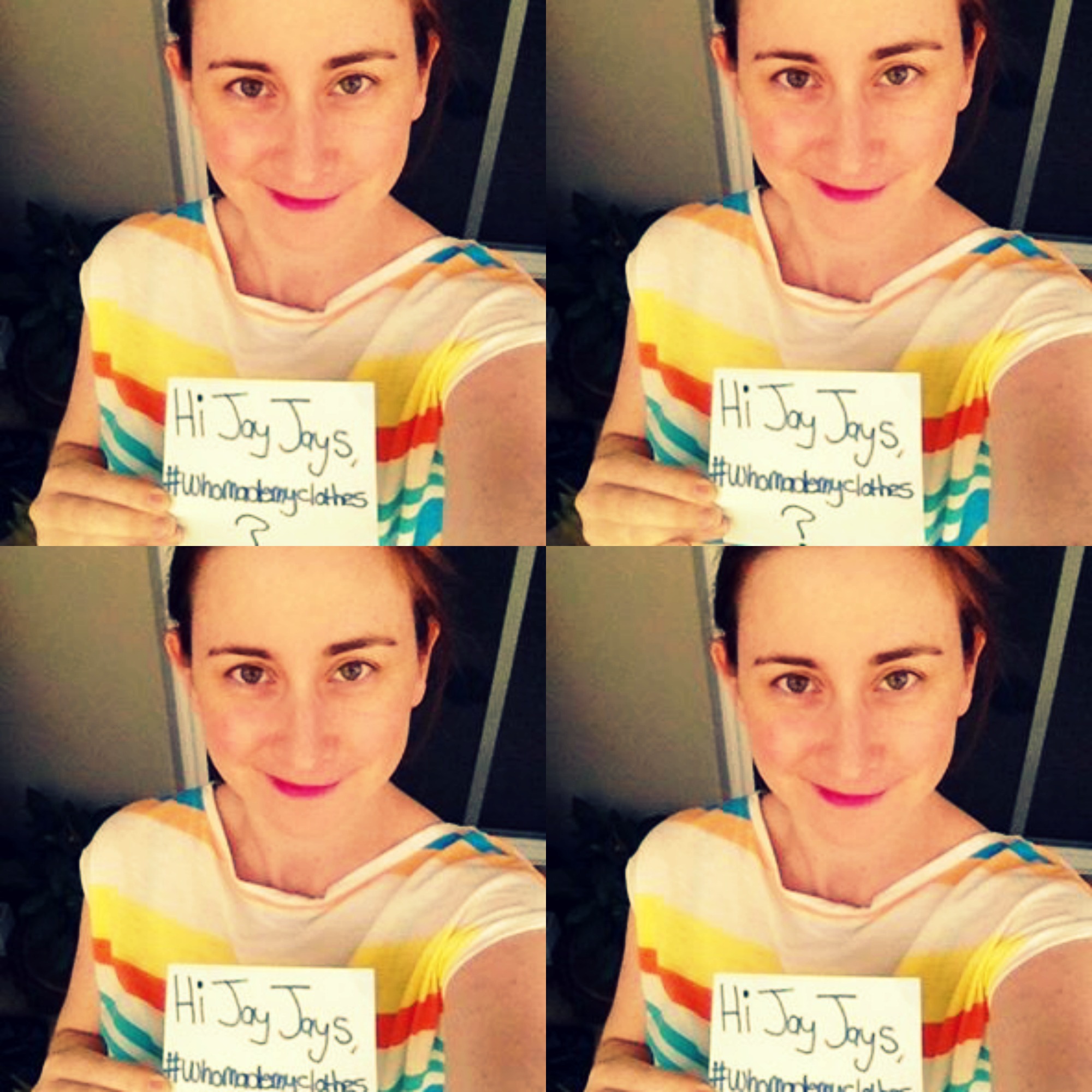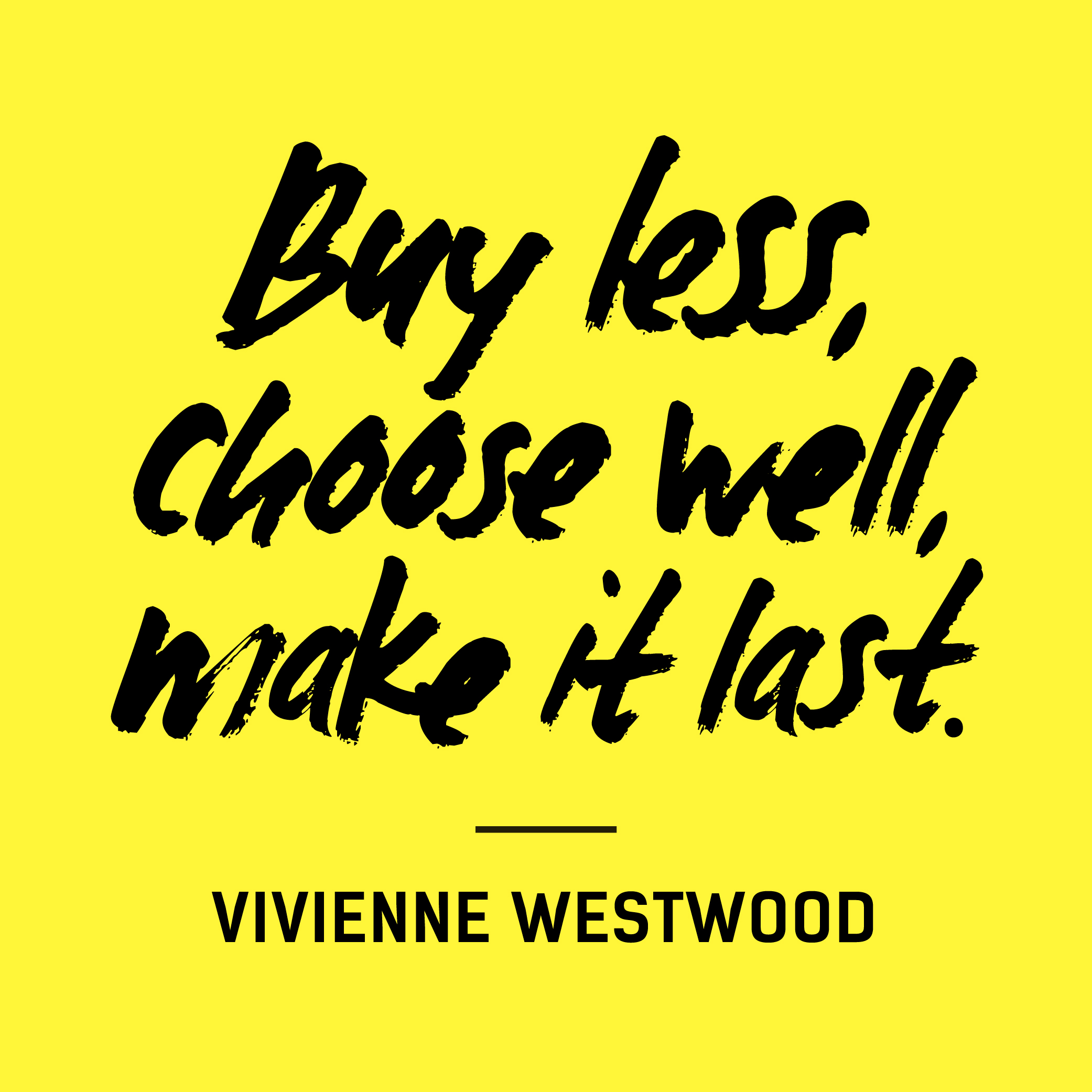Can you cut 1 Tonne of carbon pollution out of your life?
Take the challengeWritten by Kendall Benton-Collins (Creator of Kindness by Design + Committee Member of Fashion Revolution Australia)
Last week was Fashion Revolution Week – with Sunday 24 April marking three years since 1,133 garment workers were killed and 2,500 injured, when the Rana Plaza garment factory complex collapsed in Dhaka, Bangladesh.
The Fashion Revolution movement is all about consumers, designers and makers of fashion coming together to say – enough is enough! The ultimate goal is a fashion industry that values people, the environment, creativity and profit in equal measure.
Let's not pretend that this will be easy. It won't be! This is a global industry which pumps out over 80 billion items per year. Much of it is rife with human-rights abuses, and the huge increase in production over the past 20 years has left a devastating environmental footprint.

According to Fashion Revolution's White Paper on Transparency:
- A survey of 91 fashion brands found that only 12% could demonstrate any action at all towards paying wages to garment workers above the legal minimum[1]
- In 2014 the worldwide consumption of textiles reached about 73 million tonnes and is expected to grow at nearly 4% annually through 2025[2], yet only 20% of textiles are recycled each year around the world[3]
- 17-20% of industrial water pollution comes from textile dyeing and treatment and an estimated 8,000 synthetic chemicals are used throughout the world to turn raw materials into textiles, many of which will be released into freshwater sources[4]
I would argue the need for two different types of fashion revolution.
One is outward-facing. It's the external call for transparency, accountability and positive change – where we ask brands, #whomademyclothes? What are the links in your supply chain? How socially and environmentally ethical are the steps involved in creating this garment or accessory? And how can you prove this is so?

This is when we engage with and encourage our favourite brands to improve the way they do business. For example, every ton of discarded textiles reused saves 20 tons of CO2 from entering the atmosphere (Source). In France for instance, companies are now responsible by law for managing the recycling of their products at the end of their usage (Source).
A great way to keep the pressure on, is to support the key advocacy organisations campaigning for social and environmental reform in the fashion industry.
"Our campaign is about re-connecting the broken links in the supply chain. By reminding people of the true cost of our clothing - to both the planet and its people - we hope we can encourage everyone to see their clothes as investments, to be cared for and valued, as they were in previous generations. Clothing shouldn't be disposable. So much time and resources go into making what we wear so it's up to each of us to consider our purchases more thoughtfully and commit to them for the long term" – Melinda Tually, Fashion Revolution Country Co-ordinator
The second type of fashion revolution is of the self – and the one I think is the most challenging. This is where you need to hold yourself accountable for your own actions as a consumer. We can take direct action by letting brands know that we as customers care about the ethics behind their label and will shop accordingly.
I believe this to be essential, empowering and easily underestimated. Your purchasing decisions are in your hands and there's no more room for 'blissful ignorance'. The stakes are too high. As a society we purchase 400% more clothing today than we did just 20 years ago.[1] This is staggering!
Even the most enlightened shoppers are contributing to a system based on the creation of more stuff and the depletion of precious resources. This is why Fashion Revolution's #haulternative initiative is celebrating a more hands-on relationship with our clothing – from mending and making, swapping and thrifting, to vintage and hiring.

Fashion is an expression of self, beauty and attitude. When we do decide to buy something new, it's a great opportunity to support brands working hard to create fair and transparent supply chains. It's important for fashion-lovers to remember that choosing to buy ethical no longer means sacrificing style. Sorry – that's no longer a relevant excuse!
Yet we can't shy away from the larger issues either – our planet's resources are finite and our ecosystems fragile. We can no longer pretend that shopping is a frivolous activity. Conscious choices are the new black.
Banner Image: Unsplash
Read this next: Quit the shopping habit! Do these 10 things for instant happiness.
1 Million Women is more than our name, it's our goal! We're building a movement of strong, inspirational women acting on climate change by leading low-carbon lives. To make sure that our message has an impact, we need more women adding their voice. We need to be louder. Joining us online means your voice and actions can be counted. We need you.
REFERENCES
[1] Baptist World Aid Australia (16 April 2015). the truth behind the barcode: Australian Fashion Report 2015. Gershon Nimbalker, Jasmin Mawson, Claire Cremen, Haley Wrinkle and Elin Eriksson.
[2] APIC, 2014
[3] Soex presentation at Textile exchange conference 2014
[4]http://www.theguardian.com/sustainable-business/water-scarcity-fashion-industry
[5] Forbes, 2014: http://www.forbes.com/sites/aliciaadamczyk/2014/11/20/why-brands-and-retailers-are-running-with-the-slow-fashion-movement/2/#4beba10261e4
